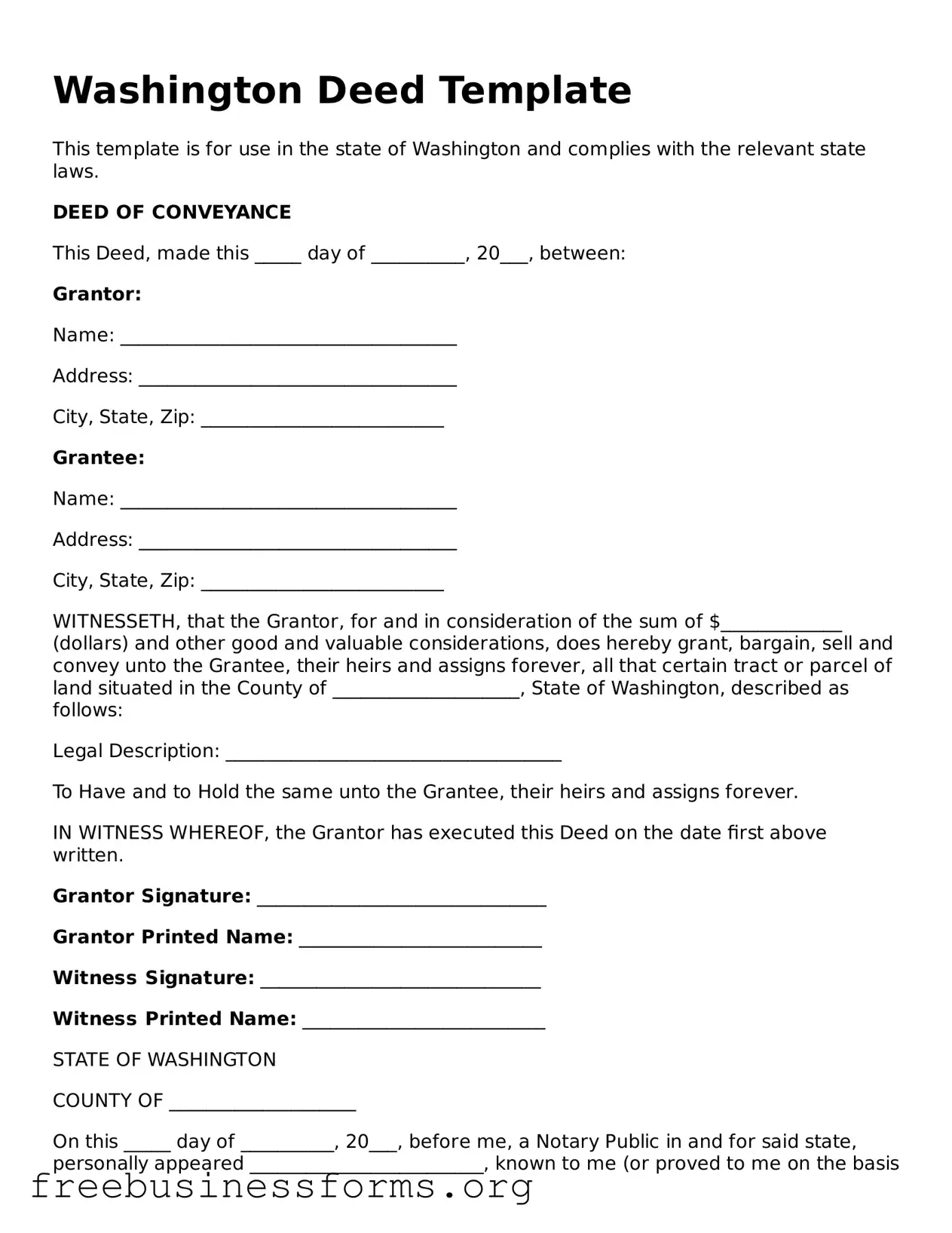Blank Deed Template for Washington
A Washington Deed form is a legal document used to transfer ownership of real property from one party to another. This form outlines the details of the transaction, including the names of the parties involved and a description of the property. Understanding the specifics of this form is essential for ensuring a smooth transfer process.
Open Form Here

Blank Deed Template for Washington
Open Form Here

Open Form Here
or
↓ PDF File
Quickly complete this form online
Complete your Deed online quickly — edit, save, download.